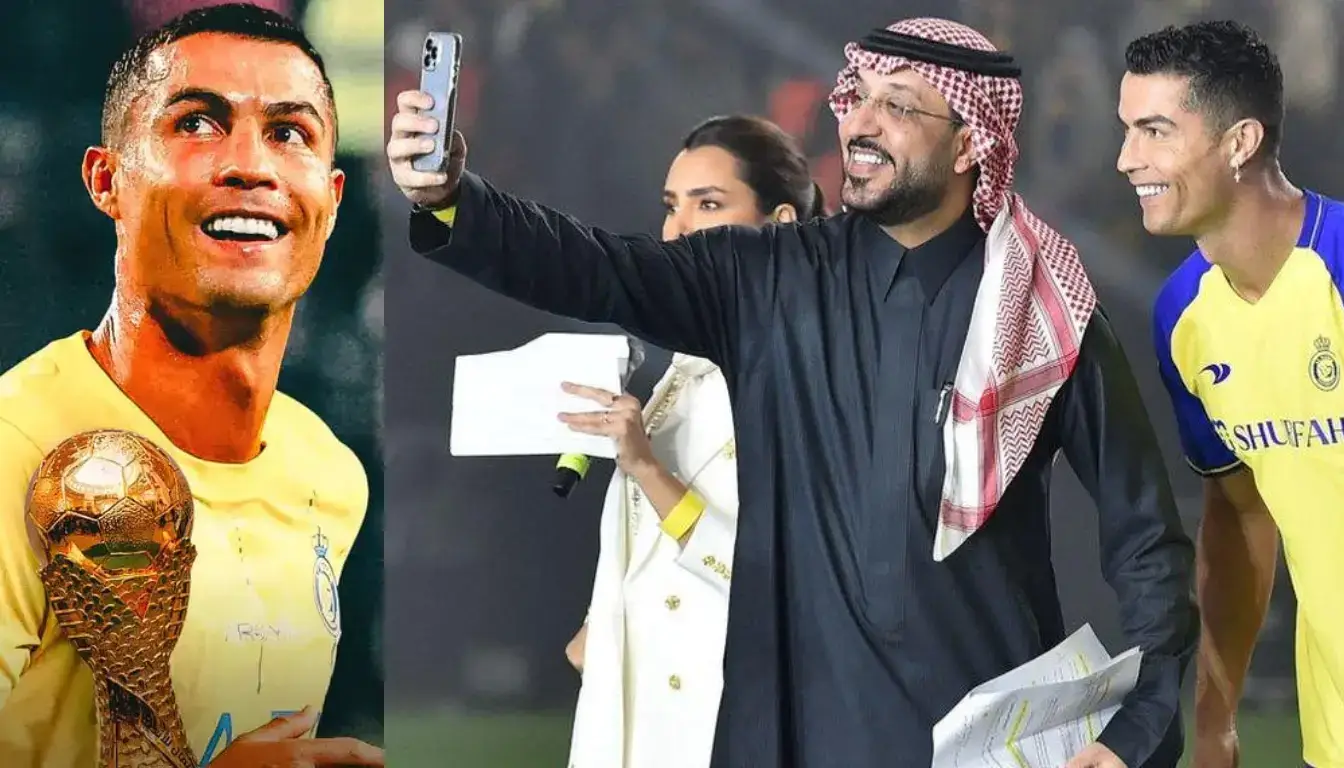
How Al-Kholood’s US Ownership Could Shape Cristiano Ronaldo’s Saudi Pro League Legacy (2026)
The Saudi Pro League has become one of the fastest-growing football leagues in the world, largely due to significant investment in top-tier talent and infrastructure. Cristiano Ronaldo’s arrival in Saudi Arabia marked a turning point, elevating the league’s profile internationally. Meanwhile, the Kingdom’s privatization push, which invites international investment, has introduced US ownership stakes in clubs like Al-Kholood. This development raises important questions about how American involvement may reshape the league’s competitiveness and Ronaldo’s legacy.
In this article, we’ll examine how US investment in Saudi Pro League clubs aligns with the broader privatization efforts, the specific role of Al-Kholood Club in this transformation, and how these factors could redefine Cristiano Ronaldo’s impact on Saudi football.
The Rise of the Saudi Pro League
The Saudi Pro League (SPL) has been undergoing a remarkable transformation since the mid-2010s. Backed by the Kingdom’s Vision 2030 initiative, Saudi Arabia has committed billions to sports, entertainment, and infrastructure, aiming to diversify its economy beyond oil. Football sits at the heart of this transformation. High-profile signings—including Cristiano Ronaldo—have been central to the SPL’s strategy to draw global attention.
This expansion isn’t just about on-field success. It’s also about elevating Saudi football to global commercial standards. By opening the door to international investment, including from US-based firms, the SPL is laying the groundwork for long-term sustainability and global relevance.
Privatization: The Driving Force
Privatization is the linchpin of Saudi Arabia’s new sports policy. Under this initiative, the government transfers ownership of clubs from public entities to private investors. This policy aims to:
- Improve financial sustainability.
- Attract global investors.
- Enhance club governance.
- Increase competitiveness and professional standards.
The privatization drive has made the Saudi Pro League an attractive destination for foreign investors, especially those from the United States. American investors bring expertise in sports management, marketing, and fan engagement—key components in transforming clubs into global brands.
Al-Kholood Club: A New Player in the Spotlight
Al-Kholood Club, a mid-tier team in the Saudi Pro League, has recently emerged as a focal point for US investment. Historically known for its passionate local fan base and steady performances, Al-Kholood is now gaining international attention due to American interest.
The club’s new ownership structure signals a shift from traditional Saudi club management to a more global, business-oriented approach. With American stakeholders potentially at the helm, Al-Kholood stands to benefit from advanced analytics, international partnerships, and new revenue streams, including sponsorships and merchandising.
Key Features of US Investment in Al-Kholood Club:
- Strategic Branding: American investors often excel at turning clubs into marketable brands.
- Player Development: Expect more focus on youth academies and talent pipelines.
- Infrastructure: Improved training facilities, stadium upgrades, and technology integration.
- Global Outreach: Efforts to attract international fans and commercial partners.
US Investment in Saudi Pro League: A Broader Perspective
US investment in Saudi Pro League clubs isn’t just about finances—it’s about influence and expertise. American ownership models, honed in leagues like the NFL and MLS, emphasize profitability, entertainment value, and fan engagement. When applied to the SPL, these models could:
- Increase match-day revenues through better fan experiences.
- Boost broadcasting rights and sponsorship deals.
- Create a stronger international marketing footprint.
Cristiano Ronaldo’s presence amplifies this dynamic. With his global brand power, clubs with US backing can leverage Ronaldo’s influence to attract sponsors and audiences from the US, Europe, and Asia.
Cristiano Ronaldo’s Role in Saudi Football’s Transformation
Cristiano Ronaldo’s move to the Saudi Pro League was more than just a career choice—it was a statement. His arrival signaled Saudi Arabia’s commitment to becoming a football powerhouse. Ronaldo has brought unparalleled media attention to the league, influencing how global audiences perceive Saudi football.
With US investors entering the scene, Ronaldo’s role becomes even more significant. He’s not just a player but also a brand ambassador for Saudi football’s new era. His performances and endorsements can help clubs like Al-Kholood build international recognition and credibility.
How Al-Kholood’s US Ownership Could Impact Ronaldo’s Legacy
The intersection of US investment, Al-Kholood Club, and Cristiano Ronaldo’s presence in the league creates a unique moment in football history. Here’s how it could shape Ronaldo’s legacy:
1. Elevating the League’s Standard
With US-backed clubs investing in better facilities, coaching staff, and player development, the quality of competition will rise. This benefits Ronaldo by ensuring he competes in a league with higher standards, which strengthens the narrative of his enduring excellence.
2. Expanding His Global Influence
Ronaldo’s association with US-owned clubs, even indirectly, positions him as a bridge between Middle Eastern football and Western markets. This could cement his legacy as a global football pioneer who expanded the sport’s frontiers.
3. Commercial Partnerships
American investors may create more commercial opportunities for Ronaldo, from joint endorsements to appearances in US-based marketing campaigns. This could extend his influence beyond football and into broader entertainment and business spheres.
4. Legacy Beyond the Pitch
By playing a pivotal role in the Saudi Pro League’s transformation, Ronaldo may be remembered not only for his goals but also for helping establish Saudi Arabia as a credible footballing nation. This legacy could rival his European achievements.
Challenges and Criticisms
While US investment brings opportunities, it also raises challenges:
- Cultural Integration: Balancing Western business models with local traditions.
- Fan Expectations: Local supporters may resist changes that commercialize their clubs.
- Performance Pressure: Clubs must deliver on-field results to justify off-field investments.
For Ronaldo, these challenges mean his performance and conduct will be under intense scrutiny. If he thrives, he enhances his legacy; if not, critics may question his role in this transformation.
The Future of Saudi Football with US Investment
Looking ahead, US investment in Saudi Pro League clubs like Al-Kholood is likely to accelerate. As more American stakeholders enter the market, expect:
- Increased media coverage in the US.
- Enhanced international broadcasting rights.
- Greater collaboration between Saudi and US sports institutions.
Cristiano Ronaldo, as the league’s marquee player, stands at the center of this evolution. His career in Saudi Arabia could mark the beginning of a new era where football transcends regional boundaries.
Conclusion
Al-Kholood’s US ownership symbolizes a broader trend of American investment reshaping the Saudi Pro League. This transformation is deeply intertwined with Saudi Arabia’s privatization efforts and Cristiano Ronaldo’s influence. By bringing in US expertise, clubs like Al-Kholood could redefine their competitive edge, branding strategies, and fan engagement models.
For Cristiano Ronaldo, this environment presents an opportunity to solidify his legacy as more than just a player. He could become the face of Saudi football’s global expansion, bridging the gap between East and West and leaving an indelible mark on the sport’s history.
In the years to come, analysts and fans alike will look back on this period as a defining chapter in Ronaldo’s career—and in the evolution of Saudi football. If successful, the partnership between US investors, Saudi clubs, and star players could serve as a blueprint for other emerging leagues worldwide.
Related Posts
Check Cristiano Ronaldo Brand Products


💬 Join the Discussion
Share your thoughts with fellow Ronaldo fans!